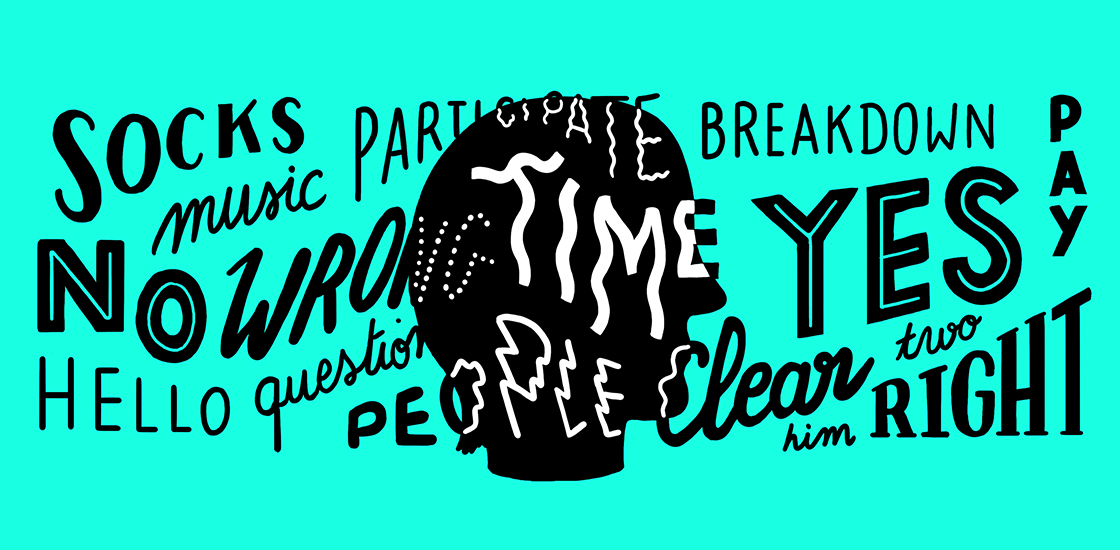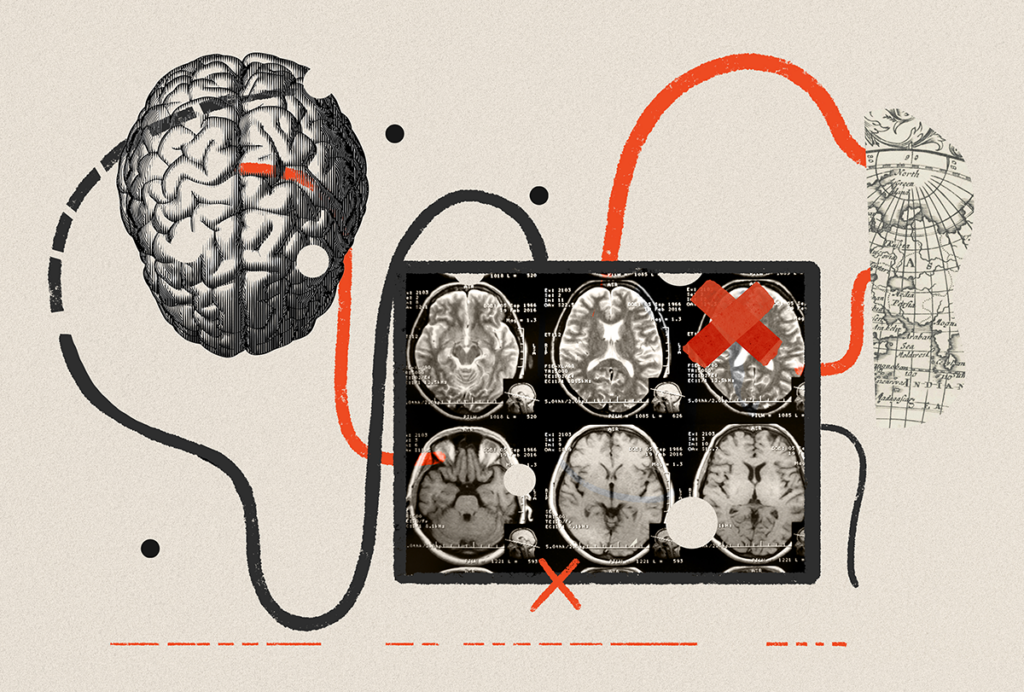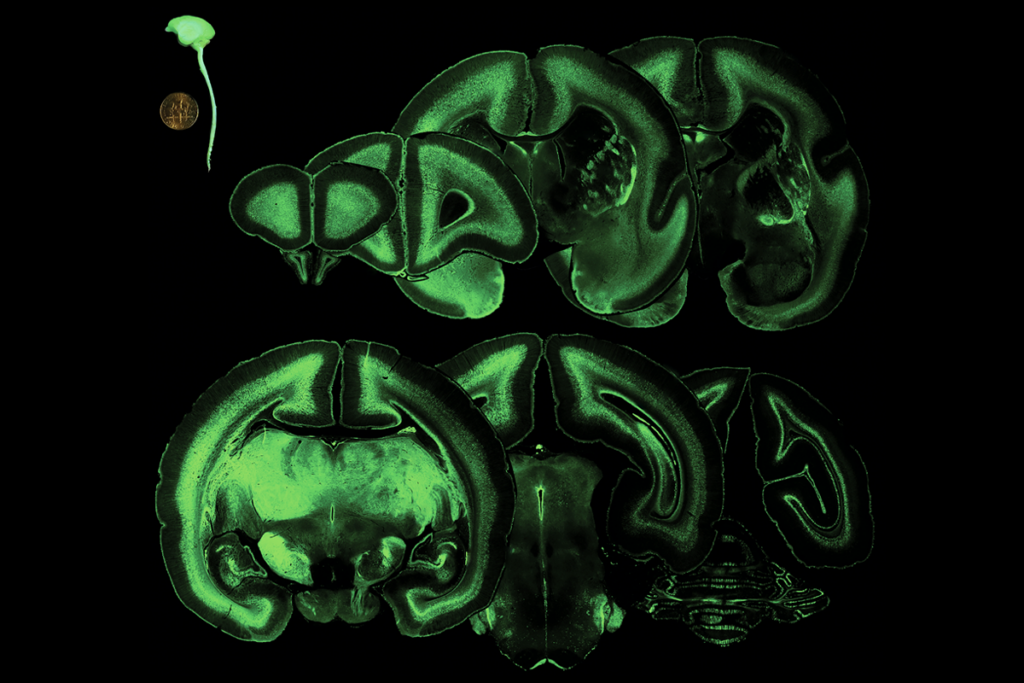Specific language impairment
Recent articles
Test gauges autistic children’s verbal abilities in natural settings
An interactive assessment allows clinicians and researchers to evaluate an autistic child's use of language in everyday social situations.

Test gauges autistic children’s verbal abilities in natural settings
An interactive assessment allows clinicians and researchers to evaluate an autistic child's use of language in everyday social situations.
Social communication in autism, explained
Communication problems have always been considered a core feature of autism. Yet there are substantial and wide-ranging differences in how people with autism communicate.

Social communication in autism, explained
Communication problems have always been considered a core feature of autism. Yet there are substantial and wide-ranging differences in how people with autism communicate.
Where communication breaks down for people with autism
People on the spectrum often have subtle problems using language or making facial expressions. Pinpointing where those difficulties originate may help ease their social communication.

Where communication breaks down for people with autism
People on the spectrum often have subtle problems using language or making facial expressions. Pinpointing where those difficulties originate may help ease their social communication.
Why no one needs a diagnosis of ‘social communication disorder’
A diagnosis of social communication disorder only keeps people from a community and resources they desperately want and need.

Why no one needs a diagnosis of ‘social communication disorder’
A diagnosis of social communication disorder only keeps people from a community and resources they desperately want and need.
Should scientists study mothers of children with autism?
Studying parents of children with autism has long been controversial, but that doesn’t mean scientists should avoid it.

Should scientists study mothers of children with autism?
Studying parents of children with autism has long been controversial, but that doesn’t mean scientists should avoid it.
Powerful memory system may compensate for autism’s deficits
A brain system called declarative memory may help people learn scripts and strategies that alleviate autism symptoms, say Michael Ullman and Mariel Pullman.

Powerful memory system may compensate for autism’s deficits
A brain system called declarative memory may help people learn scripts and strategies that alleviate autism symptoms, say Michael Ullman and Mariel Pullman.
Toddlers with autism show few symptoms during brief exams
Many toddlers with autism display so few abnormal behaviors during short doctor visits that they may evade the diagnostic eye of even expert clinicians.

Toddlers with autism show few symptoms during brief exams
Many toddlers with autism display so few abnormal behaviors during short doctor visits that they may evade the diagnostic eye of even expert clinicians.
Social language lapses hint at syndrome distinct from autism
Some siblings of children with autism have social language impairments that may signal another, more controversial disorder.

Social language lapses hint at syndrome distinct from autism
Some siblings of children with autism have social language impairments that may signal another, more controversial disorder.
Scaled-down device detects brain activity in children
A new device designed to conduct magneto-electroencephalography in children younger than 3 years is ideal for detecting early signs of autism, researchers reported 3 March in Frontiers in Human Neuroscience.

Scaled-down device detects brain activity in children
A new device designed to conduct magneto-electroencephalography in children younger than 3 years is ideal for detecting early signs of autism, researchers reported 3 March in Frontiers in Human Neuroscience.
Loss of language gene enhances pitch discrimination in mice
Mice lacking the autism-linked gene CNTNAP2 process sounds more slowly than control mice do but are better at discriminating between tones. The unpublished research was presented Tuesday at the 2013 Society for Neuroscience annual meeting in San Diego.

Loss of language gene enhances pitch discrimination in mice
Mice lacking the autism-linked gene CNTNAP2 process sounds more slowly than control mice do but are better at discriminating between tones. The unpublished research was presented Tuesday at the 2013 Society for Neuroscience annual meeting in San Diego.
Explore more from The Transmitter
BRAIN Initiative researchers ‘dream big’ amid shifts in leadership, funding
But whether the initiative’s road map for the next decade is feasible remains an open question.

BRAIN Initiative researchers ‘dream big’ amid shifts in leadership, funding
But whether the initiative’s road map for the next decade is feasible remains an open question.
Neuroscience, BRAIN Initiative gain budget in ‘bad’ NIH funding bill
The bill goes before the House of Representatives today and outlines increases for neuroscience-related research—including a 33 percent increase to the BRAIN Initiative—but maintains a multiyear spending approach that could limit the number of grants awarded overall.

Neuroscience, BRAIN Initiative gain budget in ‘bad’ NIH funding bill
The bill goes before the House of Representatives today and outlines increases for neuroscience-related research—including a 33 percent increase to the BRAIN Initiative—but maintains a multiyear spending approach that could limit the number of grants awarded overall.
Prenatal viral injections prime primate brain for study
The approach makes it possible to deploy tools such as CRISPR and optogenetics across the monkey brain before birth.

Prenatal viral injections prime primate brain for study
The approach makes it possible to deploy tools such as CRISPR and optogenetics across the monkey brain before birth.